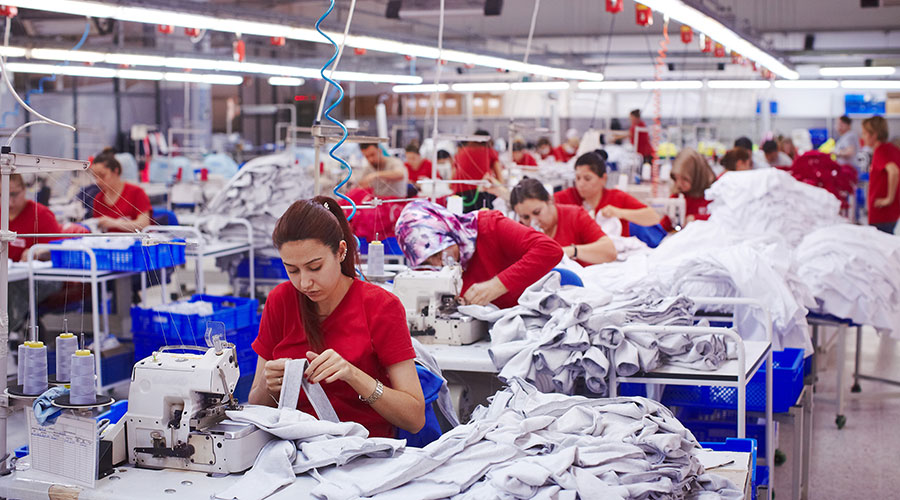Slavery in supply chains

Many of the products and services we buy and use every day are produced or undertaken by people trapped in modern slavery, including forced labour. Every day, millions of people are exploited to fulfil our relentless drive for cheap products and services, ranging from consumer electronics and garments to services including shipping and cleaning. Around 27.6 million people are believed to be trapped in forced labour worldwide in various forms. This includes 17.3 million people who are exploited in forced labour exploitation in the private economy and 3.9 million who are subjected to state-imposed forced labour. This includes in the supply chains of international businesses supplying our goods and services.
Slavery can exist in every stage of the supply chain, from harvesting or extracting raw materials – such as cocoa or cotton – to manufacturing and shipping. The reality of this is children forced to mine cobalt for use in the latest mobile phones, or women forced to produce coffee for one of our best-known brands.
The clothes you wear could be part of the problem, too: for example, almost 20% of the world’s global cotton production is linked to China’s forced labour of Uyghurs and other Turkic and Muslim groups, meaning almost every high-street garment company could be tainted with forced labour.
How does it happen?
Most products pass through a long chain of producers, manufacturers, distributors and retailers before they get to you. It can be very difficult to track all of a product’s components back to a particular producer – for example, tracing cotton in a t-shirt back to a particular cotton farm.
Businesses have built long and complex supply chains that make it difficult to oversee who is working where and under what conditions, often to their advantage. Decades of voluntary ‘corporate social responsibility’ initiatives have failed to protect people from forced labour and other abuses, as businesses simply do not have to implement them in a meaningful way.
Ultimately, the global economy and companies’ business models are set up to favour profits over workers’ rights.
Although there have been some initiatives to improve businesses’ responses to the risks in their supply chains, the problem persists.
For example, in the UK the 2015 Modern Slavery Act obliged big businesses to report on the steps they take to tackle modern slavery in their supply chains. However, the Act does not compel companies to take meaningful steps to prevent modern slavery – in fact, 40% of businesses have been found to not comply with the Modern Slavery Act at all.
What are we doing?
We strongly believe that it’s time to create an economy where people are never exploited in order to produce the goods we buy. It’s time, too, for survivors of modern slavery in the private sector to be able to access justice.
Companies have a responsibility to make sure their goods and services are never produced with slavery. This isn’t just about the goods they make in their own factories: they must also make sure slavery is not used by their suppliers, their suppliers’ suppliers, and so on all the way down the supply chain.
We work on three levels:
- We call on governments to protect workers’ rights in order to prevent forced labour in supply chains. We’re campaigning for laws to make businesses legally accountable to prevent potential exploitation and forced labour in their supply chains. We work on campaigns to end state-imposed forced labour, with our focus on China and Turkmenistan
- We work with workers at risk of modern slavery to help them know and access their rights. For example, we’ve worked with the online retailer ASOS, trade unions and local organisations to protect workers going from Asia and Africa to work in Mauritius’ garment industry, supplying many global brands
- We also work in partnership with businesses to help them identify the risks of slavery practices in their supply chains, and ultimately to address them